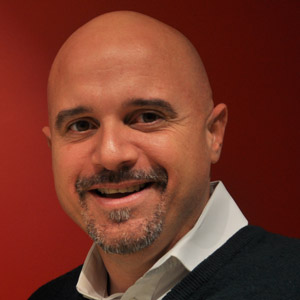After Murray passed in 2019, Hong made a $6.1 million gift in Murray’s honor to Michigan State University, the largest cash gift in the histories of both James Madison College and MSU Libraries.
JMC received $1 million to support the Stephen O. Murray Scholar in Residence Endowment, and $5 million was used to renovate space in the main MSU Library for what is now named the Stephen O. Murray and Keelung Hong Special Collections. The collections contain over 450,000 printed works, numerous manuscript and archival collections and an extensive collection of ephemera. An additional $100,000 will be used by MSU Libraries for travel fellowships to bring other researchers to MSU Special Collections.
2022 marks the inaugural year of the Stephen O. Murray Scholar in Residence Program. Salvador Vidal-Ortiz, an associate professor at American University, whose scholarship focuses on the intersectionality of race, sexuality, gender, migration and religion, is honored to be selected as the first scholar to explore the archives and raise the torch that bears Murray’s name.
“To be the first is both a gift and a responsibility. In some ways, I think the first scholar-in-residence sets the tone for what this position can offer to academia and to Murray’s legacy,” Vidal-Ortiz said.
Vidal-Ortiz will visit MSU to explore the archives during three separate visits. His first visit to campus is Jan. 27-Feb. 9 and will include a public lecture at 6 p.m. on Tuesday, Feb. 8th in Club Spartan located in Case Hall. The lecture is free and open to the public, with registration information forthcoming, and it will be livestreamed for those who cannot attend in person.
Central to Vidal-Ortiz’s research is investigating why certain social inequalities exist, particularly as they relate to race, sexuality and HIV-positive communities. “Stephen pioneered pursuing this question relative to the history of the LGBTQ+ movement and AIDS,” said Vidal-Ortiz.
During his first visit to Special Collections, Vidal-Ortiz says the main objectives are to get acquainted with the archives to “learn about Stephen and the relationship of what he collected and who he was,” and to begin exploring how research archivists can ‘honor’ the materials before them and uncover truths about the subject.
“Social movements and activism have always been connected to academia, and I’ve always been interested in the relationship between the two,” Vidal-Ortiz said. “It will be exciting to search for connections to activism in some of the intersections Stephen Murray documented and to connect the person Stephen was to Stephen, the scholar.”
Most importantly, Vidal-Ortiz is interested in identifying what the archives contain that can help scholars and students understand parts of history. “The Stephen O. Murray and Keelung Hong Special Collections will connect me with important material that will allow me to explore the activist and social movement work post-Stonewall by and for gay and lesbian communities,” Vidal-Ortiz wrote in his research proposal for the position.
Additionally, Vidal-Ortiz, intends to work closely with Madison students through workshops and classes, providing his knowledge of race and sexuality topics in sociology and connecting his expertise with some of the core areas of a JMC education: policy, international relations, political theory, comparative cultures and politics.
Vidal-Ortiz originally is from Puerto Rico and began volunteering for the Puerto Rico AIDS Foundation at the age of 18. He says the impact of AIDS shaped his identity and focus on academic work in profound ways, prompting his interest in intersectional marginalization.
He describes his scholarship as beginning with U.S. Latina/o/x research, but then branching out to Latin American. “My work in both English and Spanish connects gay and lesbian studies in Latin America, and transgender studies in Argentina and Colombia in particular, with some of the early efforts from Dr. Murray,” Vidal-Ortiz said.
“Having the opportunity to be the first scholar in residence to engage a pioneer such as Murray is a privilege not lost on me.”
This article was originally featured on the James Madison College website.
